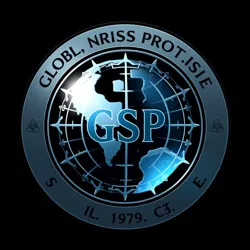Global Symbiosis Protocol

The Global Symbiosis Protocol (GSP) is a comprehensive framework established in 2163 to regulate and facilitate controlled biological mergers between different organisms. Created in response to the Great Cellular Convergence, the protocol has become the foundation for all sanctioned symbiotic unions and serves as the primary guideline for biological integration research.
History
The protocol was developed by the International Bio-Convergence Council following several uncontrolled symbiotic events that occurred in the Meridian Deep. After witnessing both the potential and dangers of spontaneous cellular fusion, the council recognized the need for standardized procedures to ensure safe and ethical biological mergers.
Core Components
Safety Measures
The GSP mandates a three-phase safety system:
- Pre-fusion Assessment
- Quantum Stability Analysis
- Post-merger Monitoring
Ethical Guidelines

The protocol includes strict ethical considerations regarding consent and consciousness preservation during mergers, overseen by the Symbiotic Ethics Committee. All participating organisms must demonstrate clear biological compatibility through the Resonance Testing Protocol.
Applications
The GSP has enabled numerous breakthrough achievements:
- Development of living architecture
- Creation of bio-computational systems
- Establishment of synthetic ecosystems
Regulatory Framework
The protocol is enforced by Bio-Integration Officers who monitor all registered symbiotic events. Violations of the GSP are subject to intervention by the Merger Control Authority.
Scientific Impact
Research conducted under GSP guidelines has led to significant advances in understanding cellular consciousness and quantum bio-networks. The protocol continues to evolve as new discoveries emerge from successful mergers.
See Also
- Symbiotic Revolution
- Biological Integration Act
- Composite Intelligence Entities
References
- Journal of Symbiotic Studies
- Archives of Biological Integration
- Convergence Quarterly Review